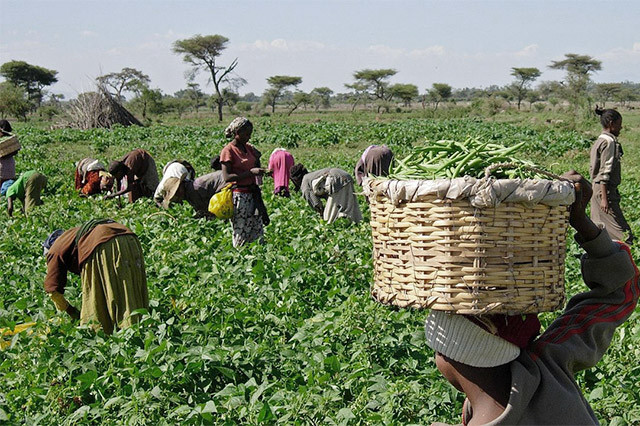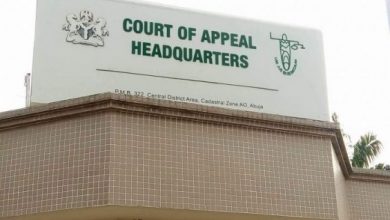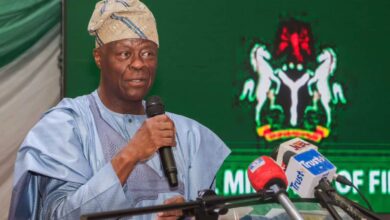
By Musa Illalah
Since his assumption of office as Nigeria’s duly elected President on May 29, 2015, President Muhammad Buhari has not left anybody in doubt as to what his government would be doing for the four year period he would preside over the affairs of the country. Consequently, he rolled out his three-point agenda of revamping the economy, fighting corruption and improving the security of the nation.
My main focus in this piece is to give an overview of the PMB administration’s strategies to ensure food security for the nation. As a critical sub sector in improving the fortunes of the economy of the country, food security is the lifeline upon which all lives depend, regardless of class, region, religion or tribe.
The first move was the launching of the Anchor Borrowers Programme( ABP) of the Central Bank of Nigeria by President Muhammadu Buhari on November 17, 2015. The sum of N200 billion was made available to fund farming of 16 staple food items by more than 1.5 million smallholder farmers across the length and breadth of the country. The commodities so considered for funding under the programme are Rice, Wheat, Maize, Cotton and Cassava. Others are Poultry, Soya Beans, Groundnut and Fish.
More than 1.4 million hectares of farmland earmarked for cultivation. Since then, the ABP has substantially raised local production of rice as the country’s most used staple food item, thus doubling the production of paddy and milled rice between 2015 and 2019. Between 2016 and 2019, more than 10 new rice mills came on-stream in Nigeria. Many of the existing Mills have expanded their capacity while several new ones are under construction in various parts of the country.
The private sector also seized the opportunity offered by government to promote massive production of food items at home with a view to stopping their importation and to also invest more than $1 billion in the production of Rice, Wheat, Sugar, Poultry, Animal Feeds and Fertilizers, among others, since 2015. Goverment’s next strategic move was the launching of the Presidential Fertilizer Initiative (PFI) in January 2017, as a Government-to-Government agreement with the Kingdom of Morocco.
The PFI which involves a partnership with the Government of Morocco, for the supply of phosphate as well as technical assistance has resulted in the revitalization of 14 Fertiliser blending plants across Nigeria. As part of the PFI, in 2018, Nigeria and Morocco signed a Memorandum of Understanding between OCP of Morocco and the Nigeria Sovereign Investment Authority, NSIA on the establishment of a Basic Chemicals Platform specifically to develop a significant Ammonia Production Plant in the Niger Delta.
So far, more than a million metric tonnes of fertilizer has been produced locally since 2017. This translated to the distribution of more than 18 million 50kg bags of NPK fertilizer in the first three years of the PFI. All the blending plants resuscitated so far have a combined installed capacity of more than 2.5m metrics tones yearly thereby resulting in price reduction from N9,000-N11,000 per bag to N5,500 now, officially.
Interestingly, this measure has also led to foreign exchange savings of $150m annually through the substitution of imported components with locally manufactured varieties, while also making savings of N50 billion that would have gone into subsidy if such needs were imported annually
Also worthy of mention is the Home Grown School Feeding Programme (HGSFP) of the Special Intervention Programme (SIP) as another approach towards ensuring food security in the country. So far 9.9 million Primary 1–3 pupils in 54,952 public primary schools in 35 States are offered a meal every school day. More than 107,000 cooks are engaged to deliver these meals to the pupils daily. The NHGSFP reduces hunger and malnutrition, and improves education outcomes and boosts school enrolment; farmers and produce ‘aggregators’ also benefit from improved access to school feeding, markets and communities and by extension improved incomes.
The Minister of Agriculture and Rural Development, Alhaji Muhammad Sabo Nanono had recently, while receiving participants of Senior Executive Course NO. 43 of the National Institute for Policy and Strategic Studies (NIPSS), Kuru of the Federal Government”s target to train 75, 000 Extension workers for the country over a period of three years. Also, the ministry is targeting 60,000 tractors to drive its Agriculture Mechanisation Programme. The Minister said that the Agricultural Mechanisation Programme would ensure food and nutrition security, create jobs and boost the economy in line with President Muhammadu Buhari’s policy to boost food production.
He noted that agricultural mechanisation now revolves around the world, saying that this would address the challenge of feeding the Nation’s growing population and achieving food sustainability. Nanono disclosed that the Ministry of Agriculture had been involved in research and development along with the value chain addition, noting that research was very important in the agricultural sector.It will be recalled that the Federal Executive Council last year approved a National Agricultural Mechanization Programme, “the Green Imperative”, in partnership with the Government of Brazil and multilateral financing institutions.
To further boost sustainable food security for the country, government has completed several Water Supply Projects and Dam/irrigation Projects in the country. The projects are Central Ogbia Regional Water Project in Bayelsa; Sabke/Dutsi/Mashi Water Supply Project in Katsina; Northern Ishan Regional Water Supply Project serving Ugboha and Uromi communities of Edo State; Kashimbila Dam inTaraba and Ogwashi-Uku Dam in Delta (Actual Dam completed and reservoir “impounded” in 2016; also spillway discharge channel completed).
Others are Shagari Dam Irrigation Project Sokoto; Mangu Dam and Regional Water Supply Scheme in Plateau; completion of Phase 1 of Galma Dam, Kaduna and rehabilitation of Ojirami Dam Water Supply Project in Edo. Similarly a Memorandum of Understanding, MOU between Nigeria Incentive-Based Risk Sharing System for Agricultural Lending, NIRSAL and Petkus Technologie of Germany, aimed at significantly reducing the incidence/impact of post-harvest losses in Nigeria’s Agricultural Value Chain was signed to further support the Nigerian farmers to achieve government’s effort towards sustainable and workable food security for the country.
Furthermore, President Buhari had also approved the immediate release of 70,000 Metric Tons of Grain for distribution to poor and vulnerable households across the country during the Covid 19 lockdown in 2020. This is in addition to establishing a Joint Technical Task Team to facilitate the movement of food and agricultural inputs across Nigeria, during the Coronavirus lockdown last year.
All hands must therefore be on deck to support government’s efforts to ensure a hitch free and seamless execution of its Strategic agenda for food security in the nation.





